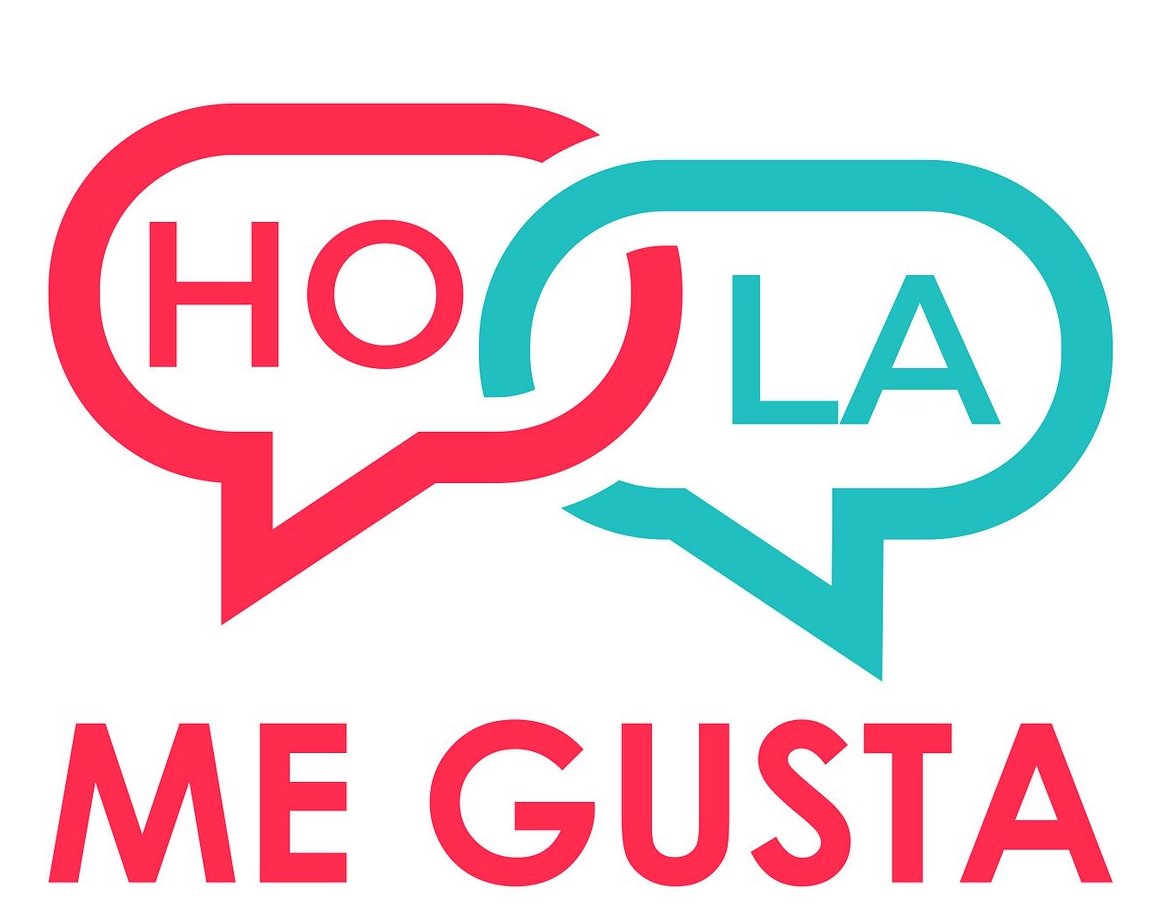That means of mi gusta – Unveiling the that means of “me gusta” opens an enchanting door into the nuances of Spanish language and tradition. This exploration delves into the phrase’s grammatical construction, cultural context, and varied purposes, providing a complete understanding past a easy translation.
From on a regular basis conversations to expressing preferences and opinions, “me gusta” performs an important position in Spanish communication. This deep dive examines the subtleties of the phrase, evaluating it to related expressions in different languages, and illustrating how its utilization evolves throughout totally different Spanish-speaking international locations. We’ll additionally discover the best way to specific stronger preferences and talk about the associated ideas of liking, disliking, and indifference.
Exploring the Phrase “Me Gusta”
Understanding the Spanish phrase “me gusta” is essential for efficient communication and navigating nuanced cultural contexts. It is a basic component of Spanish grammar, permitting audio system to precise preferences and tastes. This exploration delves into the intricacies of “me gusta,” its grammatical construction, various purposes, and subtleties of that means.
Grammatical Construction and Perform
“Me gusta” is a conjugated type of the verb “gustar,” which is exclusive in its inverted subject-verb order. Crucially, the verb “gustar” does not instantly translate to “to love” in the identical means English verbs do. As a substitute, it expresses that one thing is enjoyable or agreeable to somebody. The pronoun “me” signifies that the topic (the speaker) finds one thing pleasing.
Varied Contexts of Use
The flexibility of “me gusta” is exceptional. It is utilized in a wide selection of contexts, from expressing private preferences to describing normal societal inclinations. Examples embody expressing a liking for a selected meals, a selected passion, and even an summary idea like peace or freedom. The great thing about “me gusta” lies in its capability to embody a variety of preferences.
Comparability with Related Expressions
| Expression | Language | That means | Key Distinction |
|---|---|---|---|
| Me gusta | Spanish | I like | Focuses on the factor being preferred somewhat than the topic doing the liking. |
| I like | English | I like | Immediately expresses the topic’s liking. |
| J’aime | French | I like | Immediately expresses the topic’s liking, much like English. |
| Ich magazine | German | I like | Much like English and French in direct expression of liking. |
The desk highlights the important thing distinction in grammatical construction between “me gusta” and related expressions in different languages. This distinction impacts how the choice is conveyed.
Nuances of That means
The that means of “me gusta” could be additional nuanced by including intensifying adverbs like “mucho” (lots), “bastante” (fairly), or “poco” (a bit of). These adverbs present beneficial context to the depth of the liking, making a richer and extra particular expression of choice.
“Me gusta mucho el café.” (I like espresso very a lot.)
“Me gusta bastante la música clásica.” (I fairly like classical music.)
These examples illustrate how these adverbs modify the fundamental that means of “me gusta,” providing a extra nuanced and full expression.
Cultural Context and Utilization

Understanding the nuances of “me gusta” goes past its literal translation. It delves into the center of Spanish-speaking cultures, revealing how delicate shifts in formality and context can dramatically alter the meant that means. This exploration will unpack the cultural implications, typical utilization eventualities, and the nuances of expressing preferences and opinions utilizing this frequent phrase.Spanish-speaking cultures, whereas unified by language, show important regional variations in communication kinds.
The appliance of “me gusta” displays these variations, demonstrating a sensitivity to the social surroundings and the extent of familiarity between audio system. This evaluation will exhibit how understanding the cultural context of “me gusta” is vital to avoiding misinterpretations and fostering efficient communication.
Cultural Implications of “Me Gusta”
Totally different Spanish-speaking international locations have distinct cultural norms surrounding private expression. In some areas, direct expression of choice is extra frequent, whereas others emphasize oblique communication. This variability influences how “me gusta” is employed and interpreted. The selection of phrases, tone, and accompanying gestures can dramatically influence the message conveyed. Understanding these delicate variations is essential for correct interpretation.
Frequent Utilization Eventualities
The next desk Artikels frequent conditions the place “me gusta” is employed, highlighting the contextual elements.
| Scenario | Instance Utilization | Cultural Concerns |
|---|---|---|
| Expressing a private choice | “Me gusta el café con leche.” (I like espresso with milk.) | Direct and customary in most Spanish-speaking international locations. |
| Formally expressing a choice | “Me gusta la propuesta, señor.” (I just like the proposal, sir.) | Emphasizes respect and ritual, significantly in enterprise or skilled settings. |
| Informal dialog with pals | “Me gusta mucho esta película.” (I actually like this film.) | Casual and customary in social settings, emphasizing familiarity and shared understanding. |
| Expressing a response to one thing | “Me gusta la comida de este restaurante.” (I just like the meals at this restaurant.) | Expresses appreciation and delight, often utilized in eating contexts. |
| Expressing an opinion a few subject | “Me gusta la concept de viajar al extranjero.” (I like the concept of touring overseas.) | Expresses a private viewpoint on an summary subject. |
Examples in On a regular basis Conversations
As an example the sensible utility of “me gusta,” think about these examples:
- “Me gusta este libro. Es muy interesante.” (I like this e-book. It’s totally attention-grabbing.)
-This instance showcases a easy and simple expression of private choice. - “Me gusta la música clásica, especialmente Bach.” (I like classical music, particularly Bach.)
– This instance reveals a extra particular and nuanced choice inside a bigger class. - “Me gusta mucho tu nuevo peinado.” (I actually like your new coiffure.)
-This demonstrates using “me gusta” to precise admiration in a social context.
Formality Ranges
The formality stage of “me gusta” is contingent on the social setting and the connection between the audio system. In additional formal contexts, similar to enterprise conferences or interactions with superiors, a extra elaborate or respectful expression could be most well-liked. In informal conversations, the phrase retains its simplicity and directness.
Expressing Preferences and Opinions
“Me gusta” serves as a basic instrument for expressing preferences and opinions. It permits people to articulate their tastes and viewpoints in a transparent and concise method, facilitating easy communication throughout varied social contexts.
Increasing the That means By way of Associated Ideas
Understanding the nuances of “me gusta” goes past easy liking. It is essential to understand the complete spectrum of its utilization, from expressing robust preferences to describing hobbies and pursuits. This exploration delves into the associated ideas that paint a extra complete image of this basic Spanish phrase.The phrase “me gusta” kinds the cornerstone of expressing enjoyment and choice in Spanish.
Nevertheless, its utility extends past a fundamental “I like” to a posh array of feelings and actions. This part will discover the best way to specific stronger emotions and contrasting opinions, whereas additionally demonstrating the sensible utility of “me gusta” in on a regular basis contexts.
Expressing Robust Desire Past “Me Gusta”
To convey a stronger choice than a easy “me gusta,” Spanish presents a wealthy vocabulary. Phrases like “adorar” (to adore), “enamorarse de” (to fall in love with), and “encantar” (to enchant) specific deep affection and enthusiasm. For instance, saying “adoro el café” conveys a a lot stronger fondness for espresso than “me gusta el café.” Equally, “me encanta la música clásica” highlights a deep appreciation for classical music.
Expressing Disliking or Indifference
Complementing the constructive expressions, Spanish has a variety of phrases to convey disliking or indifference. “No me gusta” instantly interprets to “I do not like,” whereas “me es indiferente” signifies that one thing is irrelevant or uninteresting. Different choices embody “no me interesa” (I am not ), and “detesto” (I detest). Figuring out these alternate options permits for a extra nuanced and full understanding of the emotional spectrum in Spanish.
Utilizing “Me Gusta” to Describe Hobbies, Actions, and Pursuits
“Me gusta” kinds the bedrock for describing hobbies, actions, and pursuits. This versatility makes it a basic a part of on a regular basis conversations. As an illustration, “me gusta leer” (I wish to learn) clearly signifies a ardour for literature. Equally, “me gusta bailar salsa” (I like to bop salsa) illustrates an curiosity in a selected dance type. The phrase’s flexibility permits for a mess of prospects.
Relating “Me Gusta” to Different Spanish Phrases
| Spanish Phrase | That means | Relation to “Me Gusta” ||—|—|—|| Me encanta | I really like | Expresses a stronger choice than “me gusta.” || Adoro | I am keen on | Signifies a really robust liking. || Me apasiona | It fascinates me | Exhibits a robust curiosity and enthusiasm. || No me gusta | I do not like | Expresses dislike in distinction to “me gusta.” || Me es indiferente | I’m detached | Signifies an absence of curiosity or concern.
|This desk demonstrates the numerous methods to precise enjoyment and pleasure in Spanish, highlighting the spectrum of depth from a fundamental liking to a profound adoration.
Combining “Me Gusta” with Different Phrases, That means of mi gusta
“Me gusta” could be mixed with different phrases to offer extra particular that means. For instance, “me gusta mucho el chocolate” (I like chocolate very a lot) signifies a robust choice. Including descriptive adjectives, adverbs, or nouns enhances the element and specificity of the expression. This versatility permits for a pure and correct conveyance of emotions and opinions.
Last Ideas: That means Of Mi Gusta

In conclusion, understanding “me gusta” transcends mere translation; it is about greedy the center of Spanish expression. By analyzing its grammatical construction, cultural context, and various purposes, we acquire a richer appreciation for the nuances of the language. This exploration has highlighted the significance of context in precisely decoding “me gusta,” and supplied a framework for understanding its versatility.
From expressing easy preferences to nuanced opinions, “me gusta” proves to be a strong instrument within the Spanish language.
Detailed FAQs
How does “me gusta” differ from “I like” in English?
“Me gusta” is usually utilized in a extra impartial means than “I like” in English. “I like” can specific a choice or enjoyment, whereas “me gusta” also can describe a normal appreciation or discovering one thing nice with out essentially indicating a robust choice.
Can “me gusta” be used to explain hobbies?
Completely. “Me gusta” is often used to explain hobbies, actions, and pursuits. For instance, “Me gusta leer” (I wish to learn) or “Me gusta jugar al fútbol” (I wish to play soccer).
How can I specific a stronger choice than “me gusta”?
To specific a stronger choice, you should use variations like “me gusta mucho” (I prefer it very a lot) or “me encanta” (I find it irresistible). The context and the precise state of affairs will decide one of the simplest ways to precise a robust choice.
What are some frequent conditions the place “me gusta” is utilized in on a regular basis dialog?
Examples embody expressing opinions about meals, music, motion pictures, or actions. It is a versatile phrase used to explain something you discover pleasing.

